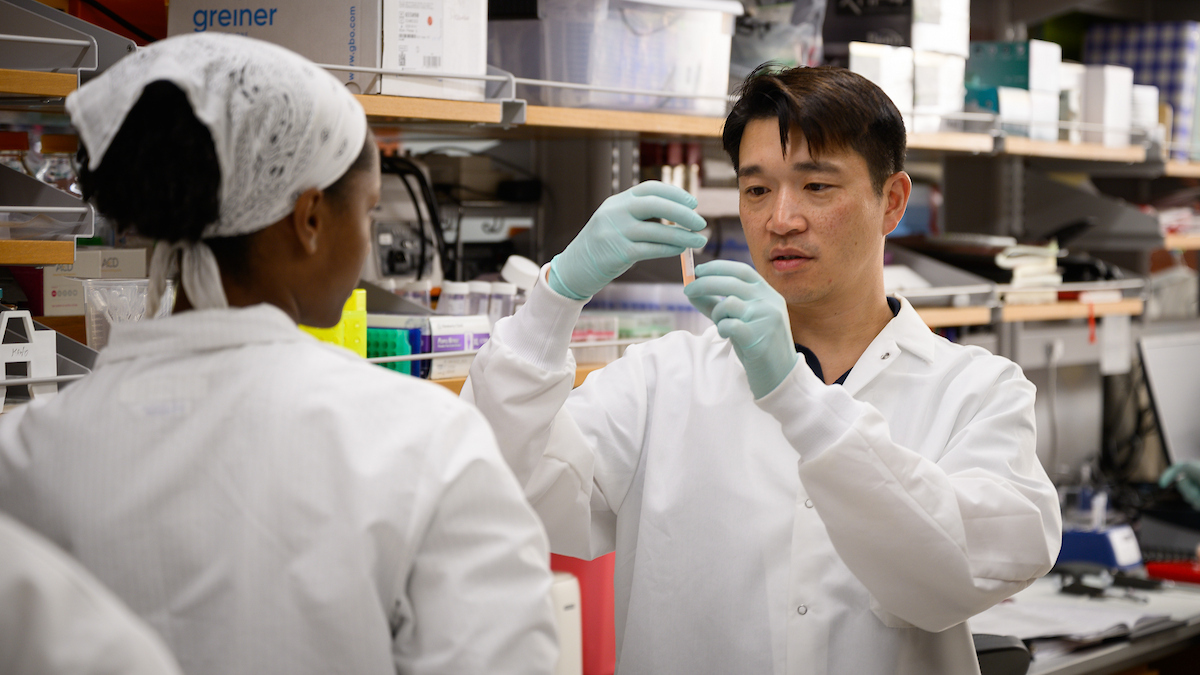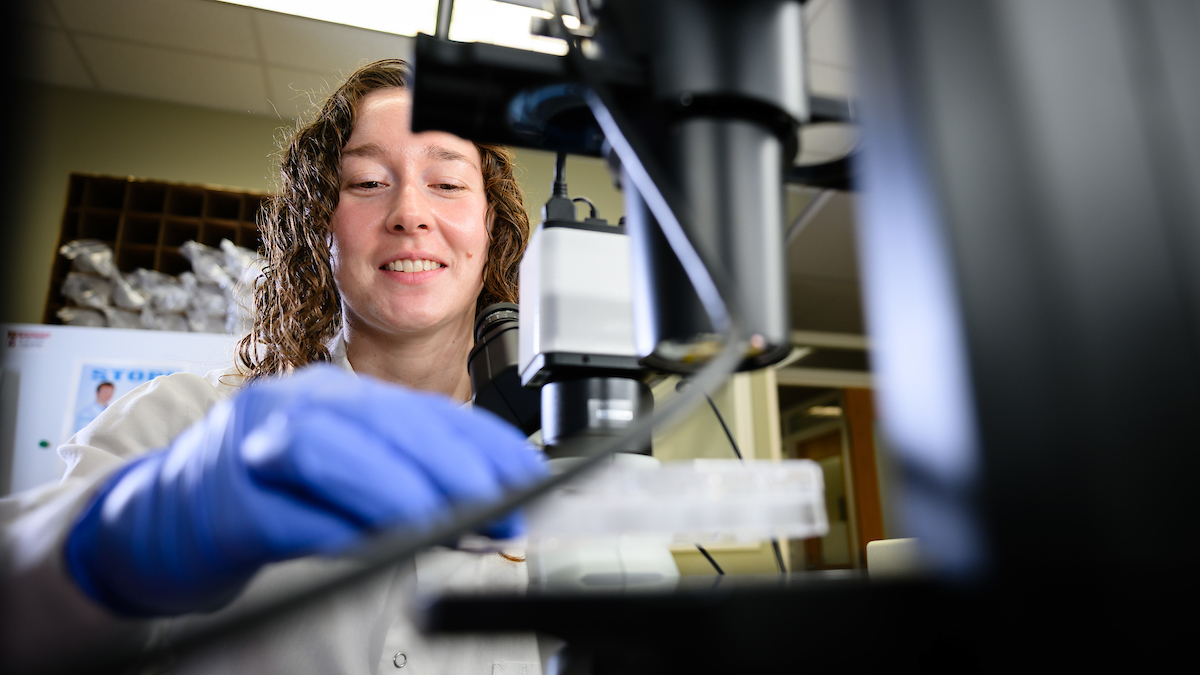NC State College of Veterinary Medicine Researcher Investigates Solutions to Equine Pain

Dr. Sam Jones, professor of equine medicine at North Carolina State University’s College of Veterinary Medicine, is interested in how inflammation is triggered and regulated and how inflammation contributes to the pathophysiology of diseases such as colitis, equine colic, sepsis, and endotoxemia. The pain horses experience with these and other issues, including laminitis, is not well understood and is the focus of current research by Dr. Jones that is supported by the Morris Animal Foundation. A report on this research appears on the Morris Animal Foundation web page and is reproduced here.
While the options for alleviating pain in cats and dogs have improved significantly over the past decade or so, there is much to be learned about which drugs will work best for horses’ unique physiology and anatomy. Large animal veterinary researchers are working hard to learn more about improving pain management in horses.
Dr. Samuel Jones, assistant head for equine programs at North Carolina State University’s College of Veterinary Medicine, points out three characteristics that are special to horses: their gastrointestinal tract, their susceptibility to endotoxemia and their vulnerability to laminitis.
These three characteristics, he says, set horses apart from companion animals and pose a challenge to veterinarians who treat them.
“A lot of how we treat pain in horses has been derived from research that has been done for companion animals and humans,” he says, “but we have to be careful because there can be differences in how horses respond to different drugs or how they experience pain, for that matter.”
Dr. Jones explains that specific research is needed on equine pain management, and he’s one of the scientists doing just that. Specifically, he’s looking at how horses react to treatment. The immune system reacts to injury or inflammation by sending neutrophils, a type of white blood cell, to the site, but sometimes the neutrophils overreact and thus damage the tissue. With Morris Animal Foundation funding, Dr. Jones is studying how these cells orchestrate the inflammatory response and evaluating a new drug that may keep the neutrophils from overreacting.
“The compound we are studying is not going to control pain, but it may control the overreaction of neutrophils that leads to pain,” Dr. Jones explains.
This could be an important breakthrough for horses because they are susceptible to endotoxemia, a condition in which harmful bacteria in a horse’s gut get into the bloodstream, which can cause shock, colic-like symptoms, laminitis and even death.
Though much is left to learn, the good news is that pain management for horses has made great strides in the past 20 years ago.
“Clinicians have all realized how important pain management is for a successful outcome,” Dr. Jones says. “Horses do much better clinically if we can control pain. That’s why there’s been an explosion of interest in the topic and importance placed on finding the best treatments.”
—–
About the Morris Animal Foundation


